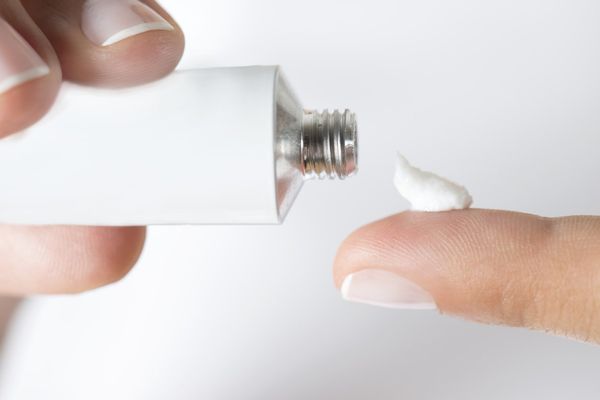As Molly struggled to get rid of the extra weight around her midsection, she began to wish she had prepared better for menopause.
"I didn't realize how much my metabolism would slow down, and I would have to watch my weight more. It really stressed me out," said Molly, 59.
Molly is far from alone. Not preparing for menopause can cause women to experience anxiety and stress, explained Dr. Sharon D. Allison-Ottey, a geriatric specialist and member of HealthyWomen's Women's Health Advisory Council, in an email.
Women may also confuse menopause symptoms with serious health conditions, including cardiovascular disease and osteoporosis.
"This would cause delayed diagnosis and perhaps complications/poor outcomes," Allison-Ottey wrote. "This is a process and each woman is different; however, in your preparation, it is important to seek out good information and have dialogue with your healthcare professional."
With that in mind, Allison-Ottey says there are some steps you can take to ease your transition into perimenopause and menopause.
Maintain a healthy weight
"It's important to go into menopause at a healthy weight because we know that as we age our risk for heart disease increases, diabetes risks increase, and being overweight/obese increases risk of certain cancers and other diseases," Allison-Ottey wrote.
Extra pounds can be attributed to changes in estrogen levels, which can contribute to weight gain, particularly around the midsection. But weighing too little can cause issues, too.
"I do not want to ignore women who are below their ideal weight going into menopause, which can be problematic as that may increase their risk of osteoporosis and other diseases related to nutrition and protein/nutrient deficits," Allison-Ottey wrote.
Change your diet
Before menopause, Molly often indulged in extra sweets but managed to stay at a healthy weight due to her high metabolism.
"Menopause changed all that," she recalled. "I wish I had started eating healthier earlier."
Make sure your meals contain more fruits and vegetables than starches and empty carbohydrates. Consider eating chicken or fish for protein, Allison-Ottey recommends.
"Most of us underestimate the amount of calories that we take in; a food log will help and [it's also a good idea to] take pictures of your meals as you start your weight loss or weight maintenance journey," she suggests.
Exercise more
Changing your diet alone won't be enough.
"The battle of the fork is important, but to boost metabolism and stave off weight gain in perimenopause or menopause, you must increase your activity with exercise, but don't look at it in the traditional sense only," Allison-Ottey wrote. "Find exercises that you actually LIKE to do . . . if you hate the gym, why go? Find other things to do."
She added that dancing to music while cleaning the house and parking farther away from the grocery store entrance are good ways to add a burst of exercise to your daily routine.
It's also crucial to incorporate lifting weights, using resistance bands or other forms of strength training to keep bones strong.
Lower osteoporosis risks
Another risk menopausal women face is developing osteoporosis, which causes one in two women over age 50 to break a bone due to the condition, according to the National Osteoporosis Foundation.
Estrogen is at fault here too. The hormone plays a role in bone density, and as the body produces less estrogen, bones are less protected.
Strength training can help protect your bones, but proper calcium and vitamin D intake are important as well. "Increase the calcium and vitamin D in your foods right now. No matter what your age or where you are on the perimenopause or menopausal spectrum," Allison-Ottey advised, adding women should focus on eating foods that are rich in calcium, such as milk, cheeses and yogurt, beans/lentils, sardines and green leafy vegetables.
She added that as you increase your calcium, you need vitamin D. "If we think of calcium as the essential passenger needed to get to our bones, vitamin D is the vehicle to take it there," Allison-Ottey wrote.
According to the Mayo Clinic, women ages 51 and older should aim to take between 1,200-2,000 mgs of calcium each day. It also recommends that people up to age 70 take 600 international units of vitamin D per day and people over 70 take 800 international units per day.
Practice good sleep hygiene
Another aspect of menopause Molly struggled with were hot flashes, which led her to lose sleep.
"I was always tossing and turning," she recalled.
According to a 2019 study, sleep disorders including obstructive sleep apnea and restless leg syndrome are common in women going through menopause.
Allison-Ottey recommends creating good sleep habits, such as maintaining a cool room temperature, not working out too close to bedtime, avoiding caffeine 12 hours before you go to sleep, and not taking naps during the day. It's also a good idea to turn off the TV in favor of breathing exercises or other calming activities to get in a sleep mindset and to maintain a regular bedtime schedule.
"Finally, know your body and your patterns. Pay attention and if [trouble sleeping] becomes life-altering, talk to your physician about therapies," Allison-Ottey wrote.
Take care of your mental health
Menopause can also cause an increase in anxiety and depression.
"Most hormonal shifts associated with menopause will be temporary and, thus, so will be your mood changes and other mental health outcomes," Allison-Ottey wrote. "If you have experienced depression or anxiety disorders in the past, they may come back during this time."
As with other menopause symptoms, if your anxiety or depression becomes unmanageable, talk to your healthcare provider about treatment options.
And during this time, try not to be too hard on your body, or yourself.
"This is simply your body going through a season of change; embrace it and you actually may like this season better than the seasons before!" Allison-Ottey wrote.
Molly asked us not to use her last name to protect her privacy.
- There's A Lot More to Menopause Than Hot Flashes - HealthyWomen ›
- Menopause and Sleep: What's the Connection? - HealthyWomen ›
- Menopause & Aging Well - HealthyWomen ›
- Menopause - HealthyWomen ›







